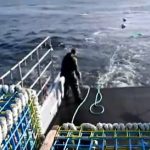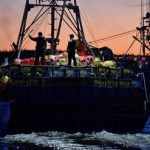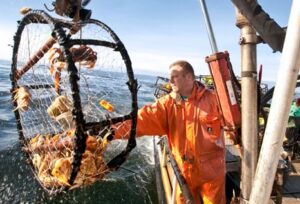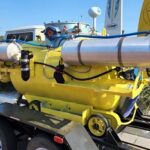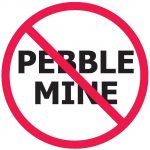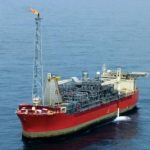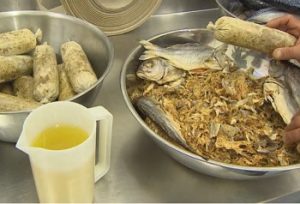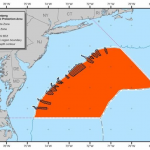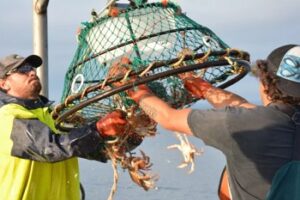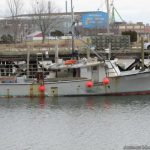Tag Archives: new study
New study uncovers fishy business with way feed is provided to major aquaculture operations: ‘The industry destroys food’
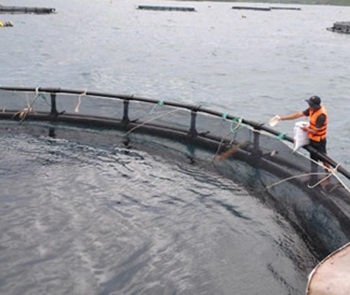 The fish farming industry has been using inaccurate data to downplay its role in the overfishing problem, a new report says. The fish farming industry has been drastically underreporting the amount of fish it pulls from the ocean each year to feed its carnivorous fish populations, according to Brigitte Wear of DeSmog. Salmon and trout subsist entirely on other fish and are also two of the most valuable farmed species in the world. However, according to a study by Science Advances, the industry is pulling 307% more fish from the ocean than previously reported. “What we understand about carnivorous fish farming has relied on the most optimistic data,” said Jennifer Jacquet, an environmental scientist at the University of Miami and co-author of the study. “The picture is not as rosy as previous studies led us to believe.” more, >>CLICK TO READ<< 09:20
The fish farming industry has been using inaccurate data to downplay its role in the overfishing problem, a new report says. The fish farming industry has been drastically underreporting the amount of fish it pulls from the ocean each year to feed its carnivorous fish populations, according to Brigitte Wear of DeSmog. Salmon and trout subsist entirely on other fish and are also two of the most valuable farmed species in the world. However, according to a study by Science Advances, the industry is pulling 307% more fish from the ocean than previously reported. “What we understand about carnivorous fish farming has relied on the most optimistic data,” said Jennifer Jacquet, an environmental scientist at the University of Miami and co-author of the study. “The picture is not as rosy as previous studies led us to believe.” more, >>CLICK TO READ<< 09:20
Study of seismic testing used in offshore oil, gas and wind energy industries finds lobsters ‘concussed’
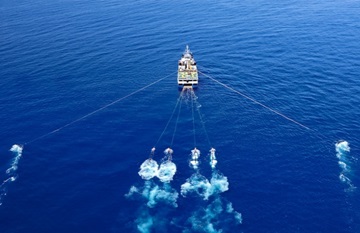 Seismic testing critical to Western Australia’s offshore oil, gas and energy industries is dazing, and potentially killing the state’s valuable western rock lobsters, a new study has found. The practice is essential to offshore oil and gas exploration and the construction of wind turbines, and involves firing powerful air guns, creating soundwaves that penetrate the ocean floor. But research by the WA government’s Department of Primary Industries and Regional Development has found lobsters exposed to the testing are significantly impacted. Offshore crustaceans scientist Simon de Lestang studied the behaviour of lobsters after they were exposed to seismic testing conducted offshore, in shallow water south of Geraldton. >>click to read<< 11:05
Seismic testing critical to Western Australia’s offshore oil, gas and energy industries is dazing, and potentially killing the state’s valuable western rock lobsters, a new study has found. The practice is essential to offshore oil and gas exploration and the construction of wind turbines, and involves firing powerful air guns, creating soundwaves that penetrate the ocean floor. But research by the WA government’s Department of Primary Industries and Regional Development has found lobsters exposed to the testing are significantly impacted. Offshore crustaceans scientist Simon de Lestang studied the behaviour of lobsters after they were exposed to seismic testing conducted offshore, in shallow water south of Geraldton. >>click to read<< 11:05
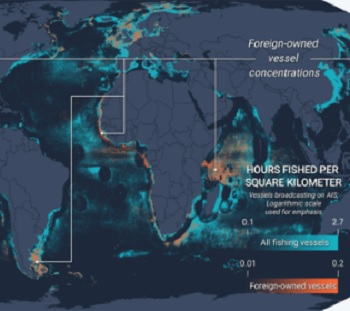
New research reveals shifting identities of global fishing fleet to help bolster fisheries management
A new study published today in Science Advances combines a decade’s worth of satellite vessel tracking data with identification information from more than 40 public registries to determine where and when vessels responsible for most of the world’s industrial fishing change their country of registration, a practice known as “reflagging”, and identify hotspots of potential unauthorized fishing and activity of foreign-owned vessels. The study, “Tracking Elusive and Shifting Identities of the Global Fishing Fleet” found that close to 20 percent of high seas fishing is carried out by vessels that are either internationally unregulated or not publicly authorized, with large concentrations of these ships operating in the Southwest Atlantic Ocean and the western Indian Ocean. >click to read< 18:28
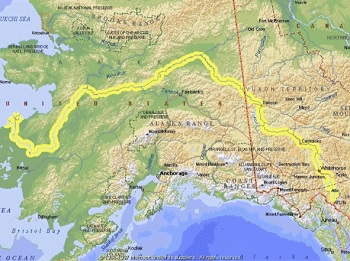
New study proposes to uncover where chinook salmon could be dying en route to Yukon
The state of Alaska is proposing new research to track dwindling chinook salmon numbers this spring, and it’s possible the study could eventually extend into the Yukon. This week, members of the bilateral Yukon River Panel met in Anchorage, Alaska, to brainstorm ways to help the salmon, which undertake one of the longest salmon migrations in the world. It’s during this migration, though, that tens of thousands of salmon seem to go missing every year. >click to read< 10:23
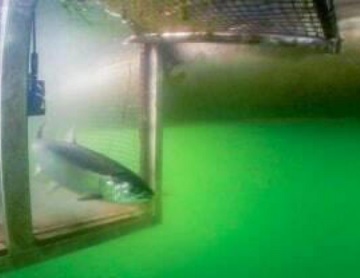
Commercial fish traps can aid wild salmon recovery
A new study evaluating alternative commercial fishing techniques further demonstrates the critical role commercial fish traps can play in recovering wild salmon and steelhead, improving fisheries management, and providing new sustainable fishing opportunities for coastal fishing communities. The publication confirms the ability of fish traps (or pound nets) to nearly eliminate unintended mortality of threatened salmon and steelhead encountered in commercial salmon fisheries of the Columbia River. >click to read< 18:09
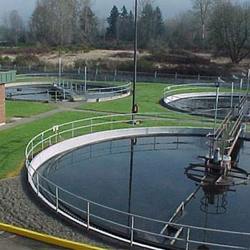
Wastewater Treatment Plants: Cocktail of drugs taint bonefish in Biscayne Bay and Keys, study finds.
A cocktail of prescription drugs, from blood pressure medications to opioids, has found its way into the flesh of South Florida’s population of bonefish, one of the state’s most sought-after game fish, according to a study released this week. “The source of this contamination is human waste and a wastewater infrastructure that has been pressed beyond its technological capability and capacity, at least to meet the demands of today,” The culprit is a sewage system designed to filter out fecal matter and other pollution, but not pharmaceuticals, researchers at Florida International University and the Bonefish and Tarpon Trust say. >click to read< 09:07 Read more about wastewater treatment plants, >click to read<
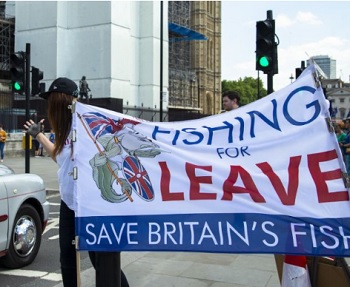
Brexit “fails to deliver Government promises on fishing industry”
Benefits to UK fisheries from Brexit “fall far short of government rhetoric”, a new study has revealed. The report, a collaboration between the University of York, New Economics Foundation, University of Lincoln and marine consultancy service ABPmer, found that while the government promised radical reforms to help the industry take back control of UK waters and increase quota shares (all while minimising trade impacts), this is starkly at odds with the reality of what has been achieved. >click to read< 08:22
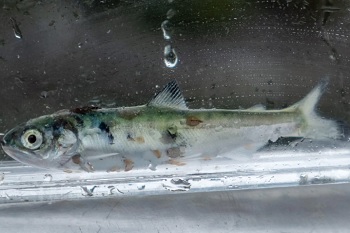
New Study – B.C. Salmon farms regularly under count sea lice, potentially putting wild salmon at risk
The study shows mandatory sea lice counts performed by the operators of the fish farms drop by between 15 and 50 per cent when they’re not being done during an audit by Fisheries and Oceans Canada (DFO). “That isn’t really a minor effect. This is a pretty obvious result,” said lead researcher Sean Godwin, who conducted the research for his PhD at Simon Fraser University. Salmon farms are required to perform monthly counts of the sea lice on their fish and make those numbers publicly available. The counts are self-reported, but fisheries officials perform occasional, pre-arranged audits to make sure the numbers are accurate. If the lice counts pass a certain threshold, the operators are required to pay for delousing treatments. >click to read< 15:59
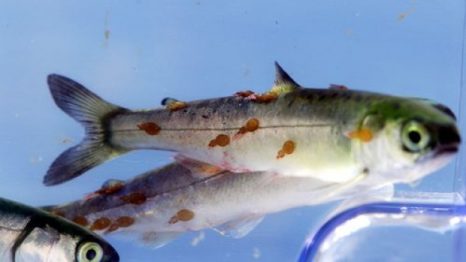
Salmon farms should be worried about more than just one species of sea lice
Migrating young sockeye salmon that are highly infected with parasitic sea lice grow more slowly, according to a new study from Simon Fraser University researchers. That matters, the experts said, because growing quickly can be the difference between life and death for vulnerable juvenile salmon. “Previous studies have shown that to survive to adulthood, young salmon need to get big fast,” said Sean Godwin, a PhD student at SFU and lead author on the study. “Those that grow more slowly — as we found, those heavily infected with sea lice — those fish are more likely to die.” Many people opposed to fish farms have raised concern over declining wild Fraser River sockeye and the potential for parasite transfer from salmon farms. click here to read the story 10:23
New Study Finds Fishermen’s Expertise is Rarely Considered by Scientists
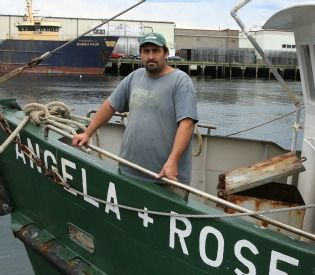 The study, published this week as Editor’s Choice by the ICES Journal of Marine Science shows that if scientists from Canada to Kiribati had worked more closely with fishermen over the last 100 years they could well have prevented infamous events like crashes in regional cod populations, as well as some of the rapid degradation we are currently seeing in tropical coral reef environments. Read more here 11:45 ICES article here
The study, published this week as Editor’s Choice by the ICES Journal of Marine Science shows that if scientists from Canada to Kiribati had worked more closely with fishermen over the last 100 years they could well have prevented infamous events like crashes in regional cod populations, as well as some of the rapid degradation we are currently seeing in tropical coral reef environments. Read more here 11:45 ICES article here
Salmon can adapt to warmer environment, study says
![]() With climate change heating up British Columbia’s rivers, there are growing concerns about the vulnerability of cold-water species such as salmon. But a shows salmon may have the ability to adapt to a warming world because Chinook that lay larger eggs produce offspring that have greater heat tolerance. Read more here 10:39
With climate change heating up British Columbia’s rivers, there are growing concerns about the vulnerability of cold-water species such as salmon. But a shows salmon may have the ability to adapt to a warming world because Chinook that lay larger eggs produce offspring that have greater heat tolerance. Read more here 10:39
More Salmon May Survive The Ocean Than Previously Thought
 When Columbia River salmon reach the ocean, they may swim off in different directions than previously thought. that could require new thinking on how many fish are surviving their journey to the sea. [email protected] 13:48
When Columbia River salmon reach the ocean, they may swim off in different directions than previously thought. that could require new thinking on how many fish are surviving their journey to the sea. [email protected] 13:48

































